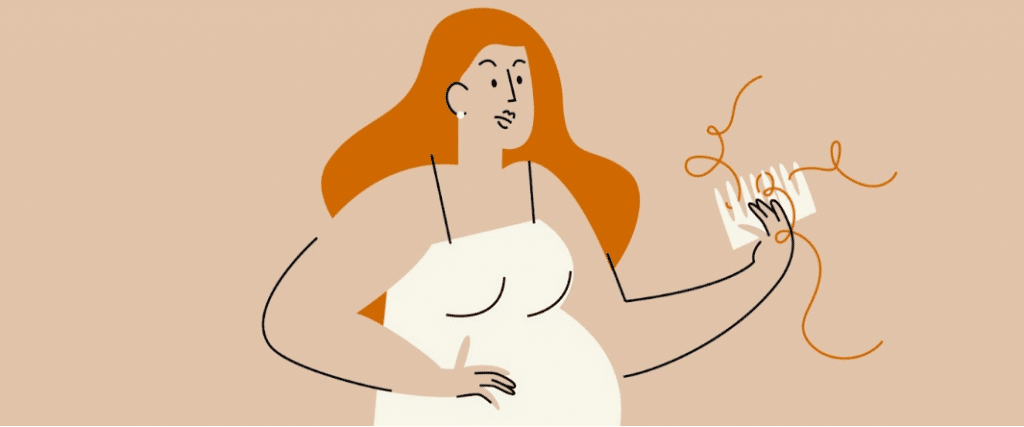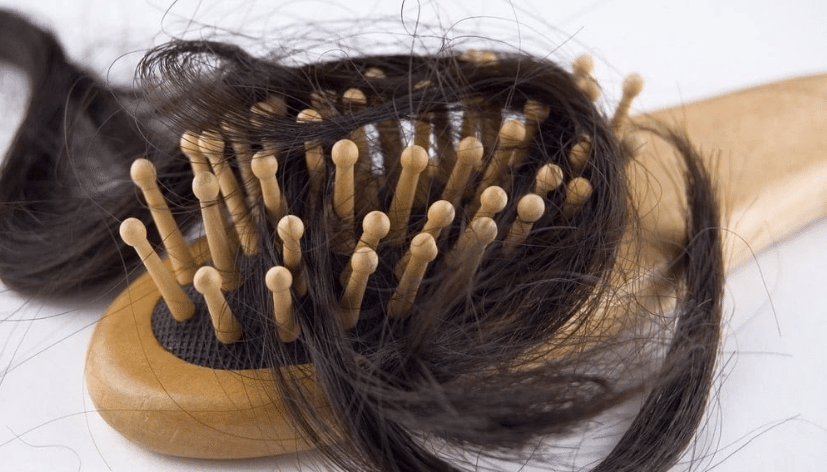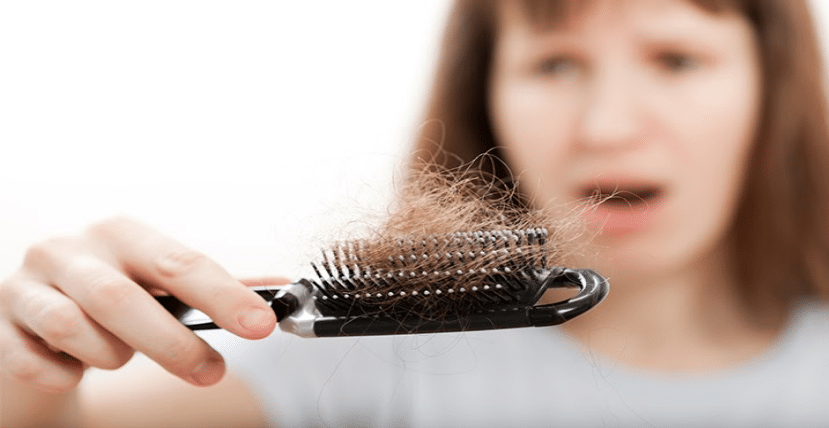You may have heard that throughout pregnancy, hair grows thick and shiny. Due to high quantities of the hormone estrogen, which delays hair shedding, this may be true for certain women.
Other expectant mothers, on the other hand, may have hair thinning or loss throughout pregnancy or in the months following delivery.
Hair loss is common during pregnancy and can be caused by a variety of factors like hormones, stress on the body, or medical disorders.

In this article, Dr Gajanan Jadhao who is one of the best hair transplant surgeons in Pune will discuss the reasons behind hair fall during pregnancy. Dr. Jadhao will also discuss the treatments available & will share some of the hair fall prevention tips for pregnant women.
In This Article
What factors contribute to hair loss during pregnancy?
Each day, men and women shed from 50 to 100 hairs on average. The natural cycle of hair follicle shedding is slowed by rising estrogen levels during pregnancy. As a result, some women may see a decrease in hair loss when pregnant. However, this isn’t always the case. According to the specialists, following are the reasons behind hair fall during pregnancy-
Hormonal changes
Stress or trauma can cause hair thinning and shedding in certain women. Telogen effluvium is a disorder that affects a limited number of women during pregnancy.
The body may be stressed throughout the first trimester when the hormone balance swings substantially to support the growing baby. Stress may cause up to 30% of your hairs on your head to enter the telogen or “resting” phase of the hair life cycle. As a result, instead of losing 100 hairs per day on average, you may lose 300 hairs per day.
Hair loss as a result of hormonal changes may not occur straight away. Instead, thinning could take two to four months to see. This disorder usually lasts six months or less and does not result in permanent hair loss.

Problems with health
Similarly, telogen effluvium can develop as a result of health concerns that arise during pregnancy. The shedding can be rather severe, especially if it’s caused by a long-term hormonal or vitamin imbalance.
Thyroid issues : Thyroid conditions such as hyperthyroidism (excess thyroid hormone) or hypothyroidism (insufficient thyroid hormone) can be difficult to detect during pregnancy.
Hypothyroidism is the more frequent of the two diseases, affecting 2 to 3 out of every 100 pregnant women. Muscle cramps, constipation, and tiredness are some of the symptoms. After the baby is born, about 1 in 20 women may have thyroid problems (postpartum thyroiditis). Thyroid problems are almost always identified by a blood test.
Iron deficiency : When there aren’t enough red blood cells to transport oxygen to the body’s various tissues, iron shortage occurs. Hair thinning can occur alongside other symptoms such as weariness, irregular heartbeat, exertional shortness of breath, and headache.
Iron deficiency anemia is more common in pregnant women, especially if their pregnancies are close together, they’re carrying multiples, or they suffer from severe morning sickness. A blood test can also be used to diagnose this illness.
While hair loss from these disorders isn’t permanent, it’s possible that your hair won’t grow back to its typical thickness until your hormone or vitamin levels return to normal.

Hair loss after childbirth
Many women have hair loss within a few months of giving birth, with hair loss peaking about four months after delivery. This isn’t genuine hair loss, but “excessive hair shedding” brought on by a decline in estrogen levels.
Telogen effluvium is the term for this type of hair loss. While seeing 300 or more hairs dropping each day can be startling, it normally resolves on its own without therapy.
Treatment for hair loss caused by pregnancy
During and after pregnancy, hair loss may not require any specific therapy. It usually clears up on its own with time.
If hair growth does not return to normal, doctors may give minoxidil (Rogaine), however this treatment is not regarded as safe to take during pregnancy.
Working with your doctor to locate medicine or vitamin supplements that will bring your levels to normal should help start the regrowth cycle over time if you have diseases like hypothyroidism or iron deficiency anemia.
Treatments for other diseases, including androgenic alopecia, are generally not advised during pregnancy. Instead of drugs, your doctor may recommend that you undergo low-level laser treatment (LLLT), which employs red light waves to stimulate hair growth.
Hair loss prevention during pregnancy
During pregnancy, you may or may not be able to do anything to prevent hair loss or shedding. It all depends on what’s causing your hair loss in the first place.
According to Dr. Gajanan Jadhao, you can try following tips to prevent hair fall during pregnancy:
- Eating a well-balanced, healthful diet. Make sure you consume enough protein, iron, and other essential nutrients. You can also ask your doctor which prenatal vitamin is best for you, whether it’s over-the-counter or through prescription.
- Consult your doctor to see if any of the medications or supplements you’re taking could be contributing to your hair loss.
- Avoid tight braids, buns, ponytails, and other hairstyles that can cause your hair to pull. Refrain from twisting, pulling, or rubbing your hair while you’re at it.
- To prevent tugging hair too hard while detangling, wash it gently and use a wide-toothed comb.
- Allowing hair to rest without the use of harsh treatments such as hot rollers, curling irons, or hot oil, as well as permanent treatments.
- Consult your physician. A physical checkup may not always be able to pinpoint the cause of your hair loss. While most incidences of hair loss during pregnancy are transitory, some situations may necessitate treatment to increase vitamin levels or regulate hormone levels.











